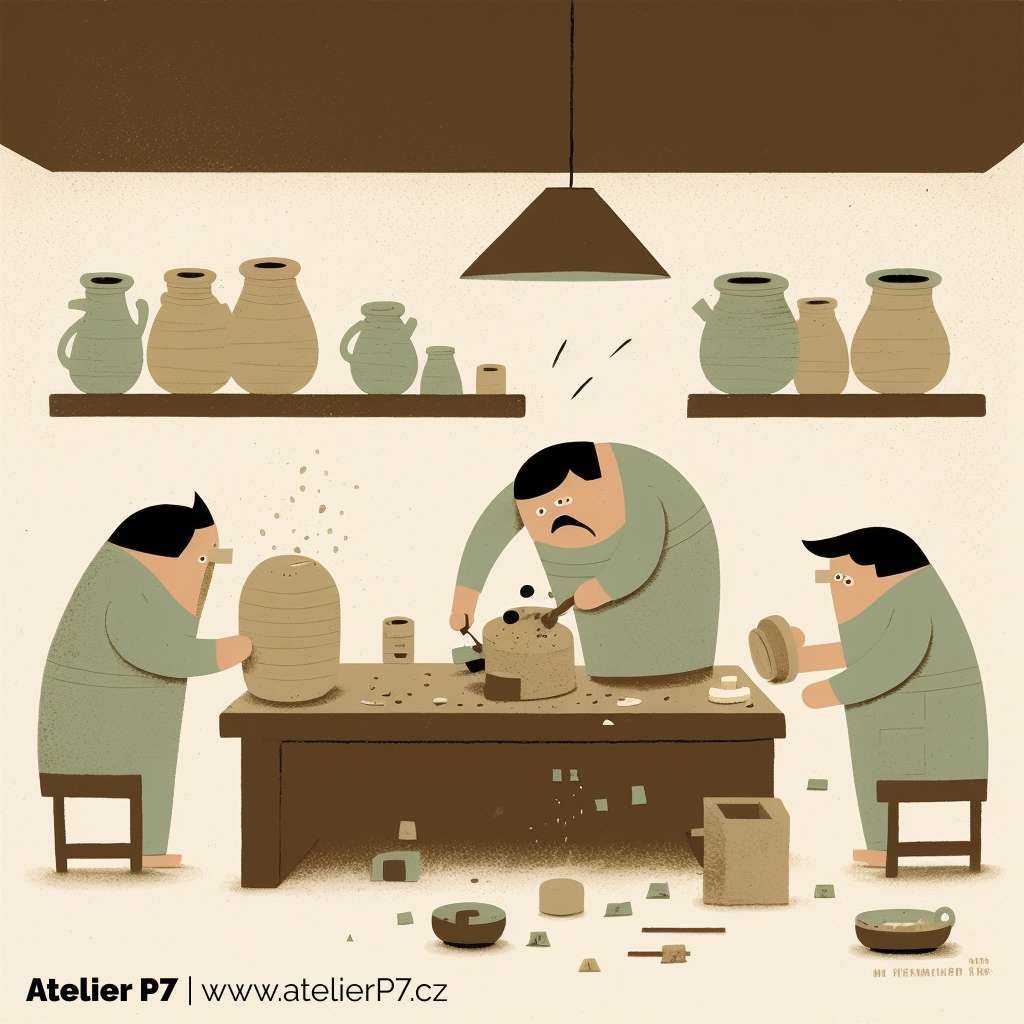
Health Conditions
Do not attend a pottery class if you are sick and can potentially spread your illness to others.
Pottery class may be not good if you have an allergy that could be triggered by the materials or activities involved in the class. Pottery classes typically involve working with clay, which can be drying and irritating to the skin.
If you have a respiratory condition, such as asthma, the dust from the clay could potentially trigger an attack. Additionally, some people may be allergic to the materials used in glazes, or to the fumes produced by the kiln when firing pottery.
If you are unsure whether a pottery class is suitable for you, it is always best to consult with your doctor or the instructor before signing up. Additionally, if you have any known allergies, be sure to let the instructor know so that they can take appropriate precautions.
Pregnant women
For pregnant women, pottery classes can be a fun and creative way to stay active and engaged during pregnancy. However, it is important for pregnant women to be cautious and to avoid activities that could potentially be harmful to their health or the health of the baby.
Pottery classes may involve working with materials that could be harmful if inhaled or ingested, such as clay and glazes, and it is important for pregnant women to take precautions to avoid exposure to these materials.
Pregnant women should also avoid standing or sitting in one position for long periods of time, and they should take frequent breaks to stretch and move around.
Babies
Materials and tools used in pottery can be hazardous for young children. Babies are at a high risk of choking, swallowing, or inhaling small objects, and the clay, glazes, and other materials used in pottery classes could be dangerous for them to handle or ingest. In addition, the noise and activity of a pottery class may be overwhelming or stimulating for a baby, and it could interfere with their sleep.
Bringing pets
It is generally not recommended to bring a pet to a pottery class, as the materials and tools used in pottery can be hazardous for animals. Clay and glazes can be harmful if ingested by pets, and the pottery wheel and other equipment can be dangerous for them to be around. In addition, the noise and activity of a pottery class may be stressful or disturbing for pets, and it could interfere with their behavior or well-being.
If you want to bring a pet to a pottery class, it is important to discuss this with the instructor and to get their permission. The instructor may have specific guidelines or rules for bringing pets to class, and they may be able to provide advice on how to keep your pet safe and comfortable during the class.
Overall, while it may be possible to bring a pet to a pottery class, it is generally not recommended due to potential health and safety risks. It is important to consider these potential risks and to take appropriate precautions before bringing a pet to a pottery class.
Limitations that prevent from working with hands
Pottery classes may not be suitable for everyone, and there are some individuals who may not enjoy or benefit from these classes. For example, pottery classes may not be suitable for individuals who have physical disabilities or limitations that prevent them from working with their hands or using pottery tools.
Focusing difficulties
Pottery classes may also not be suitable for individuals who have difficulty focusing or who have certain learning or cognitive disabilities that make it difficult for them to follow instructions or learn new skills.
No interest in pottery
Looking for a more intense or physically demanding activity
It is important to consider your own skills, interests, and abilities before deciding whether or not to take a pottery class.


